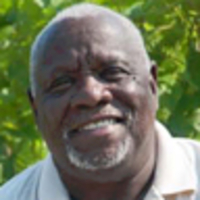
Plus: Henry Louis Gates Jr. tells his daughter about his arrest.
A few years ago the Cleveland chapter of the NAACP handed out cards to young African-American men with instructions on how they should react when a police officer pulls them over—it really isn’t a matter of “if,” just “when” for black urban youth: “Keep your hands in plain sight on the steering wheel; don’t reach for your wallet without telling the officer what you are doing and getting his permission first; don’t mouth off.” The cards were an effort to ensure that black youth survived such encounters in one piece.
Gates had made his point and his statement; his continued aggravation, and the venting of it, was sure to end with him being handcuffed—and I believe race played no role in that outcome.
Back in the day, our parents gave us similar advice to survive such encounters: “Take low.” If a police officer is dogging you out, simply suck it up and accept it. Don’t display anger; don’t “buck,” as the old folks used to say; don’t look them in the eye and stand up for your rights. In other words, don’t do anything that will cause you to wind up as a statistic on a police blotter.
The goal was clear: Live to tell the tale. Not everyone who has a brush with the law—especially persons of color—is around to talk about it.
Well, things have changed a bit in America since I received that advice from my mother back in the ’50s, but as Dr. Henry Louis “Skip” Gates Jr. recently discovered, not all that much.
While I doubt that the Harvard professor was ever in jeopardy of getting a cap busted off in his ass, one thing young inner-city blacks learn at an early age is that the police have guns, they are licensed and trained to use them, and are rarely, if ever, held accountable for their actions. The problem is, when all you have is a hammer, everything begins to look like a nail.
Professor Gates is now stating that the police report the Cambridge police officer filed in his disorderly conduct arrest last week—the charges have since been dropped—is largely fiction.
Welcome to the real world, Professor Gates. You didn’t really think the officer you are accusing of rousting you was going to write a fair and balanced report of the incident—one that you could use in a lawsuit against the City of Cambridge—now, did you? As a member of the Harvard faculty, you are aware, I’m sure, that history belongs to those who write it. The shading of the truth by officers of the law is allegedly so endemic that noted law professor (and one of the co-founders of the Sentencing Project) Barry Scheck coined a term for it: “testilying.”
The fact is, no one will ever know for certain what went on in Gates’ home when he was confronted by the white police officer. Undoubtedly, Gates was outraged by being treated as a suspect in his own home—who wouldn’t be? However, both participants in a confrontation of this kind are prone to put a little yeast in their version of events — it’s human nature. But I can’t help but wonder how long he has lived in the residence, and why his neighbor didn’t recognize him. Did she just see “black,” and not the man?
Likewise, did the officer see Gates as the potential homeowner, or just as a black man and a potential criminal? The history of black interaction with police in America leads me to suspect it was a case of the latter rather than the former. But, to the officer’s credit, at least he was colorblind: He saw a black man and he treated him like he would any other black man…with suspicion. Gates’ elevated position in the social hierarchy entitled him to no special treatment, and that has to count for something.
So, was Gates right in asking the officer if race played a role in how he was being treated, even after he had proved he was indeed the homeowner? Of course he was, but in the real world, you get to mouth off to an officer only once. He had made his point and his statement; his continued aggravation, and the venting of it, was sure to end with him being handcuffed—and I believe race played no role in that outcome.
President Obama has even weighed in on this currently red-hot topic, and, unfortunately, demonstrated a lack of understanding of how the real world works when a black (or in some cases a white) male interacts with a white or black police officer. The president’s characterization of the officer’s action as “stupid” misses the mark; “calculated” and maybe even “unjust,” it was, but “stupid” it wasn’t. Police officers in America overreact everyday, for the same reason dogs lick their nuts — because they can.
Cops will lock up anyone who continues to mouth off, be they black or white. Gates should have kept his cool and addressed his concerns in another, calmer, manner. His position at Harvard ensures that he would have been heard—much more so than the average black man. He had access to redress that other blacks lack.
When Gates was in his domicile, he was protecting his turf; when he got loud with the officer on the porch, the officer was protecting his. Had he not arrested Gates, he would have caught hell from his fellow officers after the incident. They would have talked about him as if he had a tail, and would perhaps begin to doubt out loud his fitness to wear a badge. Peer pressure among police officers, I am told, is a bitch. They simply are never going to lose face.
Here’s an analogy: You’re crossing a busy street that has a crosswalk clearly marked with blinking yellow lights; do you, because you have the right of way, blindly walk into the street, heedless of whether the traffic is stopping for you? If you do, you could wind up splattered all over the road. Sure, you were right, but in this case you would be dead right.
Gates, were he not ensconced in academia and surrounded by middle-class privilege for virtually all of his life, probably would not have reacted to what was probably institutionalized racism (I’m loath to call the officer a racist, or any more or less racist than any other white officer in America) in the manner in which he did; he would have, like so many other minorities, viewed it as a fact of life. Fortunately for him, he was in Cambridge and not inner-city Boston or some other largely black metropolitan area, which thankfully boded against the situation escalating into one in which deadly force was used. But the simple fact is, under different circumstances, it could have; our American history is littered with the bodies of black men whose only crime was that they didn’t know when to just shut the hell up.
As a good friend of mine, a retired judge, is wont to ask: “Is this the hill you want to die on?” Skip Gates wasn’t about to die on his Cambridge hill, and I think our opprobrium should be reserved for those folks (black or white) situated further down the class pecking order who are less insulated, less financially privileged, and lack resources of redress. They are at risk of a lot more than spending a few uncomfortable hours in jail if they decide to stand up to a police officer. In the end, this still is America and Dr. Gates actually got off light. There are some police officers — perhaps not in Cambridge — who would have had him wearing his ass for a hat.
Mansfield Frazier is a native Clevelander and former newspaper editor. His regular column can be seen on CoolCleveland.com. An avid gardener, he resides in the Hough neighborhood of Cleveland with his wife Brenda and their two dogs, Gypsy and Ginger.






